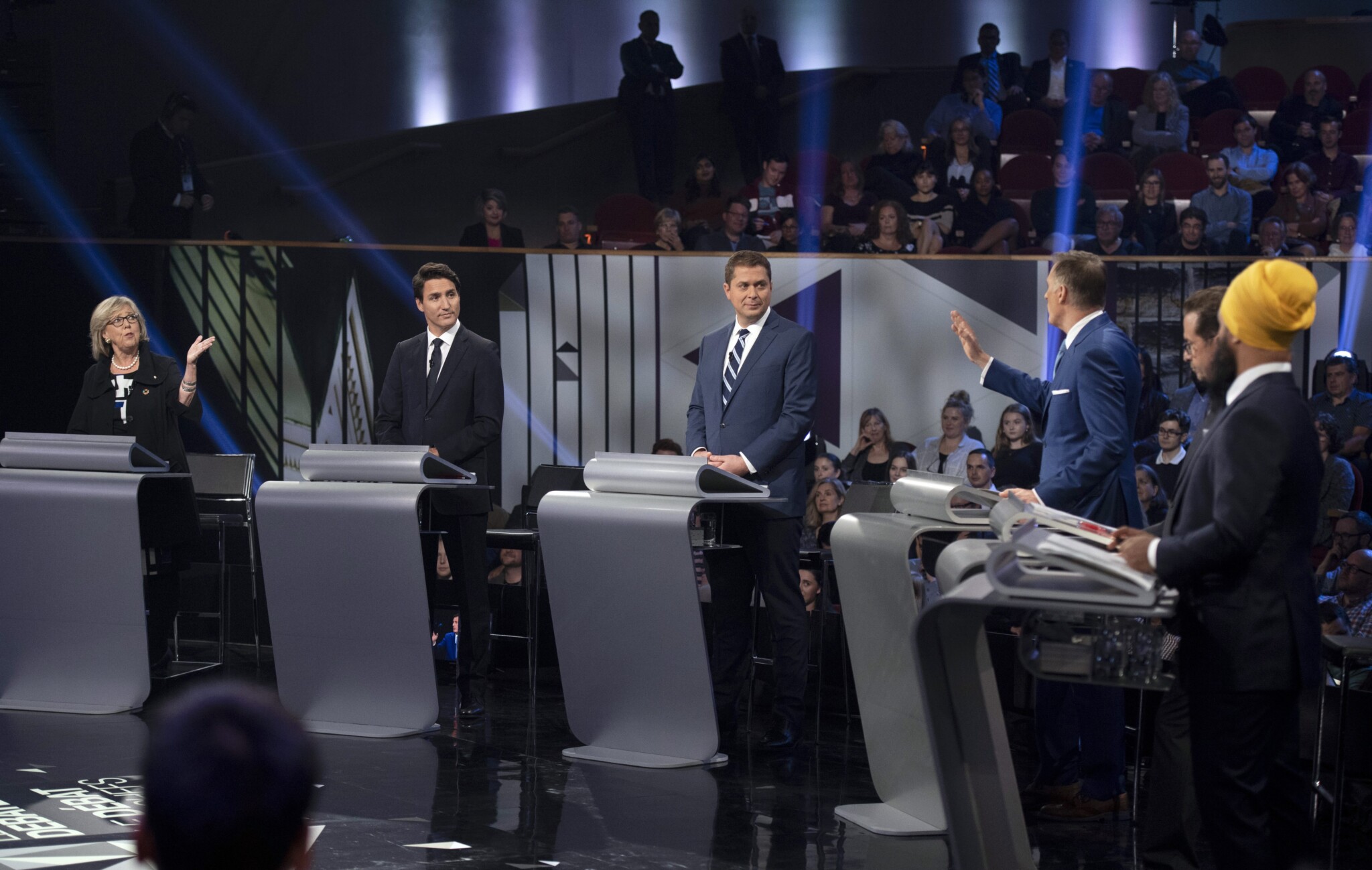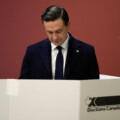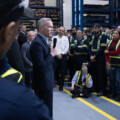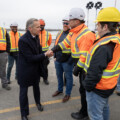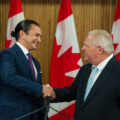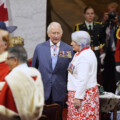With party leaders set to take to the French and English debate stages this week, we at The Hub thought now would be a good time to hear from political operatives from the three major parties who have been in the debate prep room, drafting attack lines, and playing the role of political opponents, costumes and all.
We asked them for their campaign war stories and what advice they had for their leaders, as the debates kick off.
The Conservatives
To get insight into the Conservative process, Daniel Nowlan outlines his experience as a political operative doing debate rehearsals and preparations. Daniel, currently vice-chairman and managing director at National Bank Financial Markets, was a senior debate advisor to Andrew Scheer in 2019, Stephen Harper in 2015, and Stockwell Day in 2000.
By the time the cameras go live for the debates in Montreal this week, the party leaders will have spent weeks, if not months, practicing; either honing specific attack lines or in full simulated debates. The preparation is usually meticulous and grueling, focused on sharp messaging, anticipated attacks, and tactics.
The main goal of the mock debates is to be as close as possible to the actual debate conditions. That includes real podiums, lights, cameras, and moderator questions. It also includes someone playing the role of your debate opponents. In 2015, I was tasked with playing Liberal leader Justin Trudeau during Prime Minister Harper’s debate prep. I reprised my role in 2019 to prepare Andrew Scheer.
Some tips for mock debaters:
- It’s important to be true to your character and not break character. It may seem counterintuitive, but politicians are actually crumby at pretending to play other politicians; they tend to reflexively go back to being themselves. Mock debaters are best played by party operatives. However, there are exceptions. Pierre Poilevre was excellent at capturing Thomas Mulcair’s behavior in our 2015 prep.
- Do your homework. To play Trudeau, I studied the Liberals’ policy in depth. Party staff always did a great job at preparing binders with hundreds of pages on policy proposals and commentary on election issues. I also watched every single Canadian debate going back to 1979 and hours and hours of tape of Trudeau.
When I emerged from my research, I wore what the Liberal leader wore and did my best to mimic his style, which I’d describe as a student in class trying to prove how much he knew; breathlessly spilling out his knowledge all at once in an attempt to impress. I stayed away from direct imitation, though, so as not to distract the leader.
- The timing of the mock debates matters. Your leader needs to be acclimatised to debating at 8 pm, so practice at 8 pm. The idea came from Prime Minister Harper’s son Ben, who, as a university volleyball athlete, was accustomed to his practices taking place at the same time of the day as matches.
- Finally, leave giving feedback to the leader to others. It’s never good to have too many conflicting voices in the leader’s head as he or she prepares for the big night.
In general, it was a terrifying experience to debate Prime Minister Harper, especially on foreign affairs. The debate prep binder I’d been given summarizing Trudeau’s views on foreign affairs was only a page long, as he’d only said a few sentences publicly outlining his stance. In the end, though, the Liberal leader ended up doing better than expected. What a mock debate cannot replicate is a live studio audience, which Trudeau fed off of.
In terms of advice to Poilievre, I note that TV is a “cool” medium. In my view, it would serve Poilievre well to play it “cool” and project the seriousness that voters expect from a prime minister.
A good example would be the notable difference between Harper in the 2004 debate versus 2006. He went from being aggressive in 2004 (which, as a partisan, I admit I loved at the time) to being far more statesmanlike two years later. That year he won the debate and the election that followed.
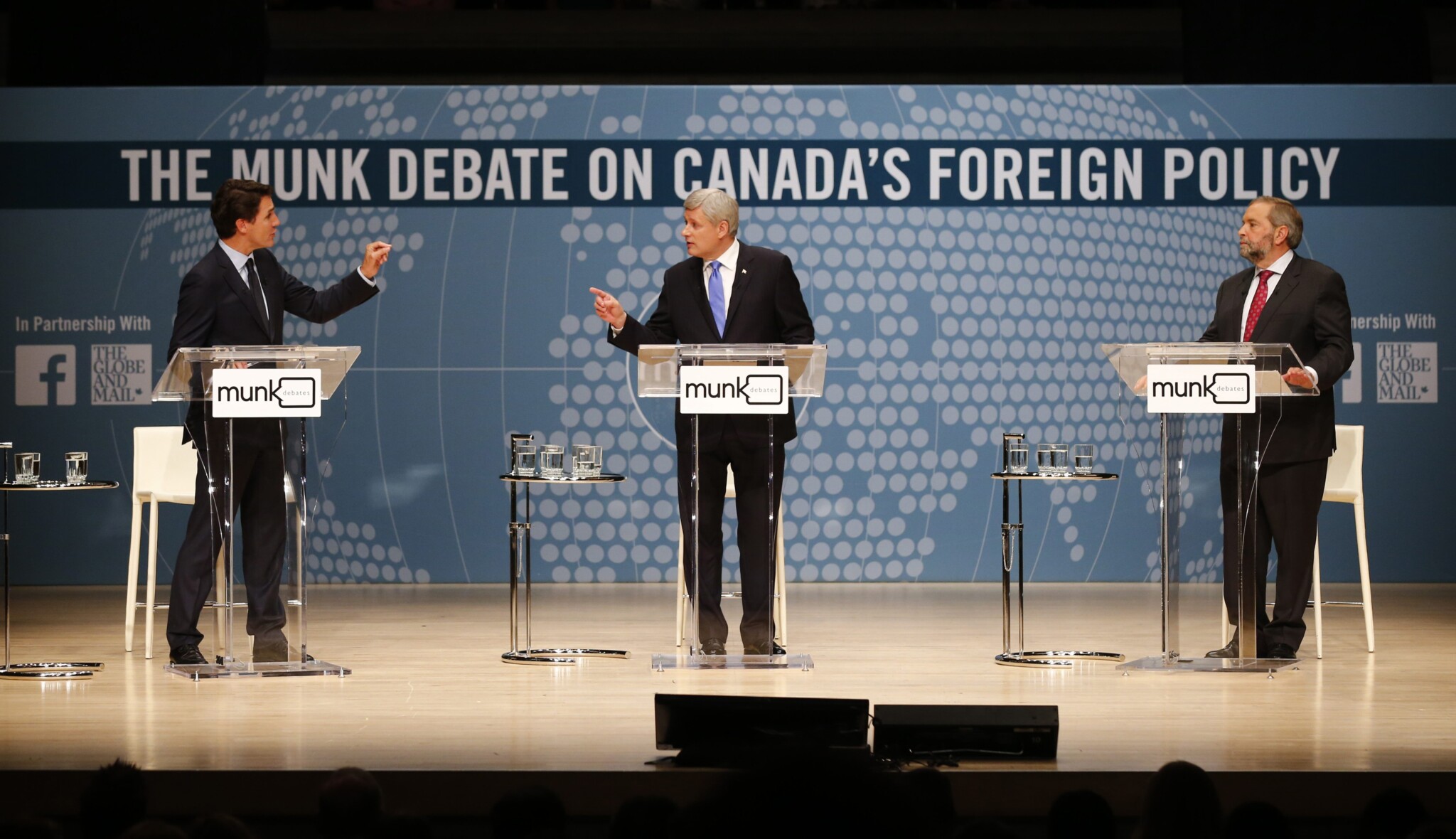
Liberal Leader Justin Trudeau, left to right, Conservative Leader Stephen Harper and NDP Leader Tom Mulcair participate in the Munk Debate on Canada’s foreign policy in Toronto, on Monday, Sept. 28, 2015. Mark Blinch/The Canadian Press.
The Liberals
Scott Reid, who has done debate prep for a number of prime ministers, premiers, and leaders, including Paul Martin and Kathleen Wynne, shares an insider’s perspective on what goes into debate prep and what Mark Carney will be looking to accomplish.
Debate rehearsal is a Goldilocks trap: too little is dangerous, but too much can be deadly.
In my time doing debate prep with prime ministers, premiers, and pretenders, there’s always an argument about rehearsal. Often, leaders want to plunge straight into the studio with the stopwatches and cosplayers. They want to learn the rules and rhythm. They want the verisimilitude of it all. It seems sensible, but it’s a mistake.
Campaigns that begin debate prep with full dress are inviting trouble. They run the risk of teaching their leader to overlook the hard but necessary work of message, manner, and strategy.
It’s important to go into studio and acquire a feel for the interplay with opponents, the faster-than-you-imagined pace, and the unnatural claustrophobia of the setting. But that should be the last task, not the first.
Once, a federal leader I was advising grew impatient with the unrewarding grind of “table work”—of reviewing and reworking debate cards that contained recommended language, tone, and timing.
“I’m at my best when I improvise,” he protested.
“No, sir, you are not,” I replied.
That frosty finish to our relationship was soon followed by a spectacular pasting in the leaders’ debate. A little less studio, and a lot more study might have helped after all.
For Mark Carney, table work will be particularly important. The newly minted prime minister is on track to win an improbable victory. But it leaves him a marked man. Every other leader knows that to win, they must make Carney a loser.
On the campaign trail, Carney has sometimes shown an inclination toward thin-skinned and sharp-tongued replies when pressed harder than he’d like. It’s his worst look. The frontrunner’s spot has come to the Liberal leader thanks to his calm, concentrated posture. That’s what he must channel even as he’s provoked in rapid-fire French one night and on lightning hot ethics attacks the next. Let Blanchet and Poilievre make the mistake of appearing too hot and too partisan.
Carney isn’t winning because he’s a politician. He’s winning because Canadians think he’s not a politician. His goal over the course of these two events is to remain, even in the face of assault—the leader voters have come to prefer. That will take discipline. The kind of discipline you rarely find in dress rehearsal.
It’s the kind you carry in with you.
The New Democrats
Jordan Leichnitz, who helped prep Thomas Mulcair in 2015 and Jagmeet Singh in 2019 and 2021, offers her perspective on how the New Democrats are thinking about the upcoming debate.
In every election, debates offer voters a rare chance to size up party leaders up close and personal—not just on what they say, but how they say it. Beyond policy, debates reveal character: how leaders handle pressure, how they respond to attacks, and whether they can connect with ordinary Canadians watching at home.
Behind the scenes, debate prep is an intense and strategic effort. Leaders are coached to sharpen contrasts with their opponents across a wide range of issues. But success on the debate stage isn’t just about scoring points—it’s about standing out, building trust, and shifting the momentum.
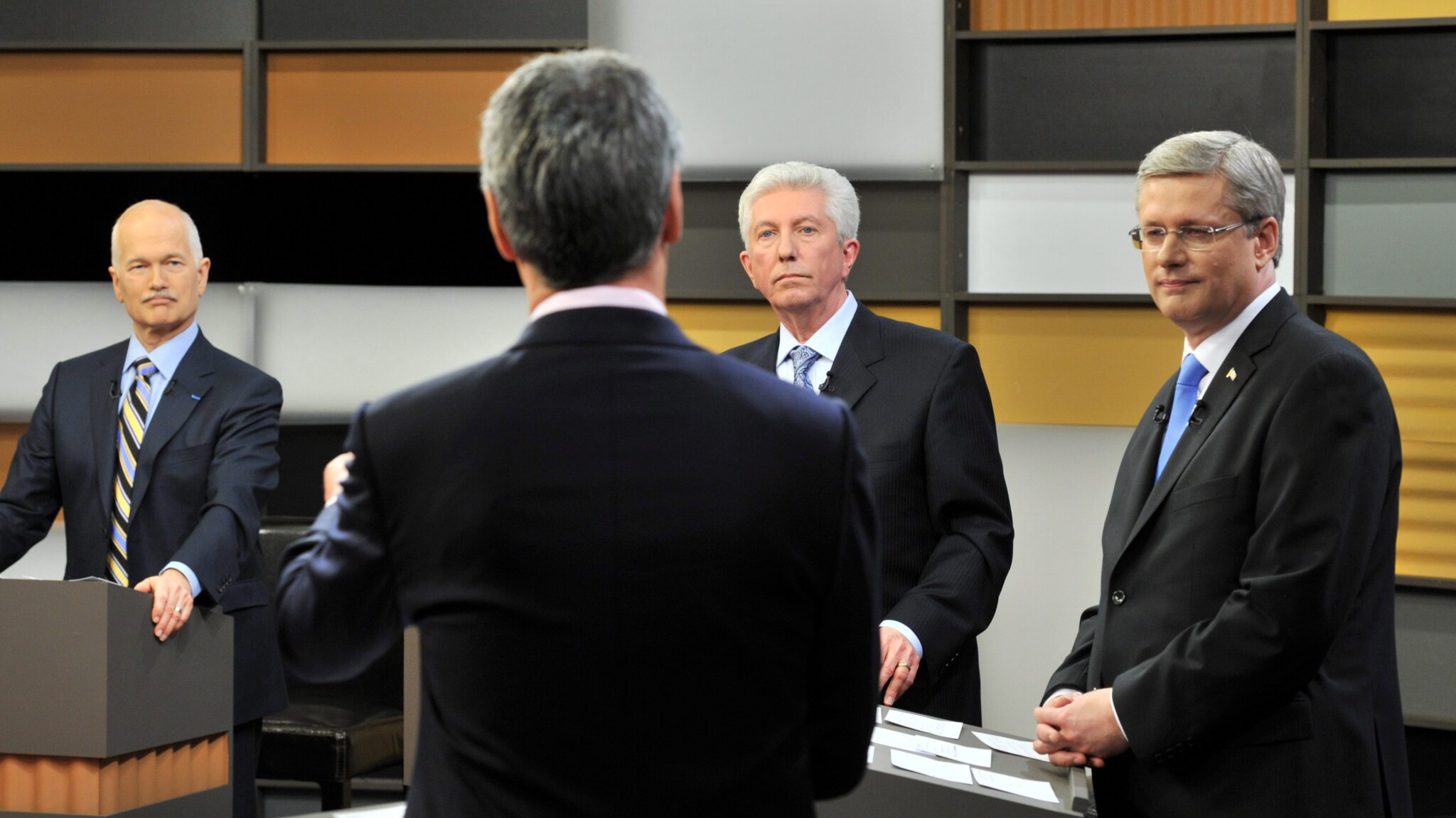
New Democratic Party leader Jack Layton, left to right, Bloc Quebecois leader Gilles Duceppe and Prime Minister Stephen Harper listen to Liberal leader Michael Ignatieff debate during the French language federal election debate in Ottawa April 13, 2011. Sean Kilpatrick/The Canadian Press.
In 2011, NDP leader Jack Layton landed one of the most memorable lines of that campaign, hammering Liberal leader Michael Ignatieff over poor attendance in Parliament.
“Most Canadians, if they don’t show up for work, they don’t get a promotion.”
That line, carefully crafted during prep, helped Layton solidify a surging NDP wave.
But there’s a danger in being too sharp. In 2015, NDP leader Tom Mulcair displayed formidable debating skills, but his aggressive tone toward a fresh-faced Justin Trudeau backfired. Trudeau exceeded expectations—and Mulcair’s acid exchanges left voters cold.
That same risk looms for Pierre Poilievre. While he sees himself as a skilled debater, his disdain for Liberal leader Mark Carney will be hard to mask. He may land blows that excite his base, but alienate swing voters—especially women—who are put off by his hostility.
Debates rarely flip campaigns overnight. More often, they reinforce what voters already feel. That’s why the challenge for NDP leader Jagmeet Singh is clear: get noticed, and get noticed for the right reasons.
Singh’s goal will be to remind Canadians about the value of the NDP. He’ll point out that every time the party has any kind of power, it uses it to force the Liberals to deliver tangible improvements on health care, housing, and workers’ rights.
The NDP leader needs to make the case that in the face of Trump’s threats, the last thing Canadians need is a Liberal government with a free hand to make painful cuts to the supports that regular people count on.
Singh faces a steep uphill battle. But with more debate experience than any leader on stage—and a gift for personal connection—he has a shot at delivering the kind of moment that could shift the conversation for the NDP.
